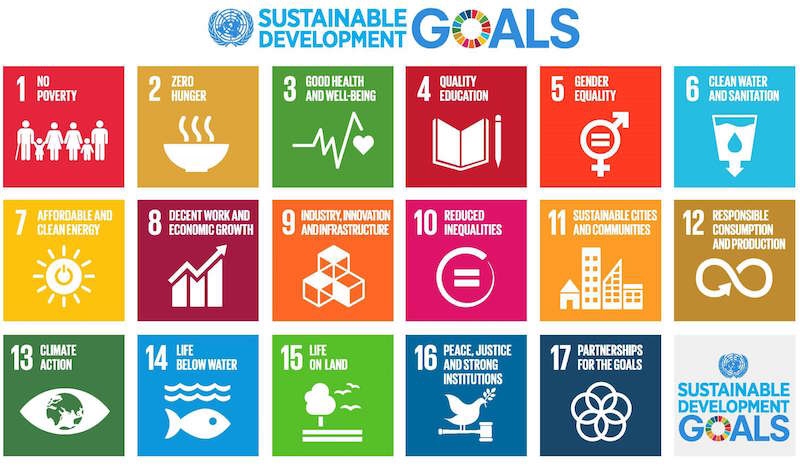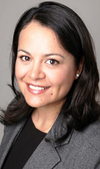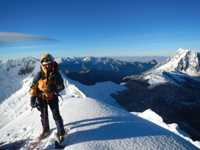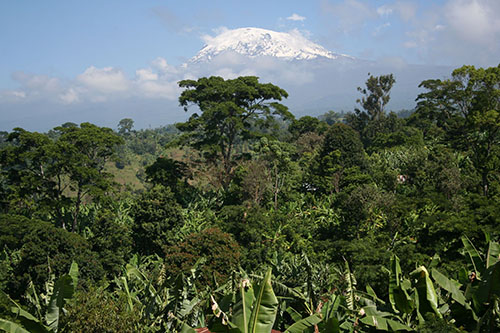News
- Details
- Category: Global News
 |
Call for applications: |
 |
10 days left for a chance to contribute: New effort will provide seed funding for projects to develop innovative solutions for complex challenges in sustainability, such as inequality, the global food system or ecosystem services. Apply by 10 February.
Future Earth and the Stockholm Resilience Centre are launching a call for applications for Sustainable Development Goal Labs (SDG Labs). These labs will bring together participants from a range of research disciplines and sectors of society, including media and communications, to develop prototype solutions for complex problems connected to the United Nations’ Sustainable Development Goals (SDGs). They will contribute to two upcoming events: the Resilience 2017 conference and the International Conference on Sustainability Science, which will be held back-to-back in Stockholm from 21 to 26 August 2017.
The organisers of the new call for SDG Labs are seeking “brilliant ideas with the potential to make major breakthroughs on the SDGs.” The deadline for applications to run a lab is 10 February 2017.
To learn more about this call or how to apply, see the background briefing and application guidelines.
The SDG Labs are multi-stakeholder processes to catalyse transformation in institutions, systems and sectors of society, such as the global food system, international governance, inequality and poverty or ecosystem services. The goal of this effort is to build innovations that can fundamentally change the systems that created the problem in the first place. The labs may focus on social, ecological or technological innovations or, more likely, a combination of the three.
The organisers plan to provide up to 5,000 USD in seed funding for 5 to 7 labs. The labs can take place anywhere in the world but must be held before 21 August 2017. The outcomes of the labs will be presented at a special science-policy session of the two conferences in Stockholm on 24 August 2017. The vision of the organisers is for the labs to feed into the UN’s High Level Political Forum (HLPF) in 2018, which has the theme of “Transformation towards sustainable and resilient societies.”
- Details
- Category: Global News
21-23 August, Stockholm, Sweden
- Details
- Category: Global News
2-4 October 2017, Barcelona, Spain
- Details
- Category: News
We are glad to announce that a new director has been appointed to lead the MRI. Dr. Carolina Adler will take office at MRI in May 2017.
 |
With Carolina Adler, the MRI has chosen a director with outstanding achievements in the field of public policy, winning the Harold D. Lasswell prize for policy research in mountain regions, amongst others.
She is currently working as Research Fellow at the ETH Zurich in the Environmental Philosophy Group and Transdisciplinarity Lab, both at the Department of Environmental Systems Science. Carolina earned her PhD at Monash University (Australia), focusing on climate impacts, values, vulnerability, and adaptation using policy sciences. The significance of her work to policy applications was demonstrated by an invitation to join the Society for Policy Scientists in the USA, in which she was recently voted into its Executive Council. |
A Geographer and Environmental Scientist by training, Carolina’s pragmatic research interests and activities centre on problems of policy relevance, focusing on the effects and challenges of global change in society. Her current research collaborations and consulting activities address climate change adaptation, vulnerability and resilience, the use of scientific evidence in policy, and co-production of knowledge. Other interests include: the role of public opinion in shaping policy processes, adaptive governance, decision-making under uncertainty, systemic reviews/assessments/evaluations, adventure tourism and recreation in mountain regions, and inter- transdisciplinary collaborations.
| Dr. Adler has been a member of the MRI since her PhD years between 2007-2010, actively participating at various events within the European and Latin American networks, as well as contributing to the more recent MRI project on Assessing Sustainable Mountain Development. Carolina also brings many relevant networks and existing collaborations to her role as MRI Director, including Future Earth, ISSC and ICSU, among others. Other relevant connections to practice and the public and private sectors, includes her work as current President of the Mountain Protection Commission of the International Mountaineering and Climbing Federation (the UIAA), also based in Bern Switzerland. |  |
We wish Dr. Adler a most successful start in her new role at the MRI!
- Details
- Category: Global News
A new report looks at the growing issue of waste in the world’s mountain regions. Launched by GRID-Arendal, the International Solid Waste Management Association and the United Nations Environment Programme on 11 December, International Mountain Day, “Waste management Outlook for Mountain Regions - Sources and solutions” highlights both the challenges and the solutions for sound waste management in mountain regions.
- Details
- Category: News
Are you doing research on African mountains, considering it, or just interested in the topic?
Then the Kilimanjaro Mountain Research Conference is a great chance for you!
The Conference theme will be "African mountain ecosystems under global change. Linking biodiversity, biotic interactions and biogeochemical ecosystem processes."
Seize the opportunity to submit abstracts until 15th February!
Register and submit online at http://www.afromont.org.
The Conference will take place on 22-26 February 2017 in Moshi, Tanzania.
More Information

![]()






